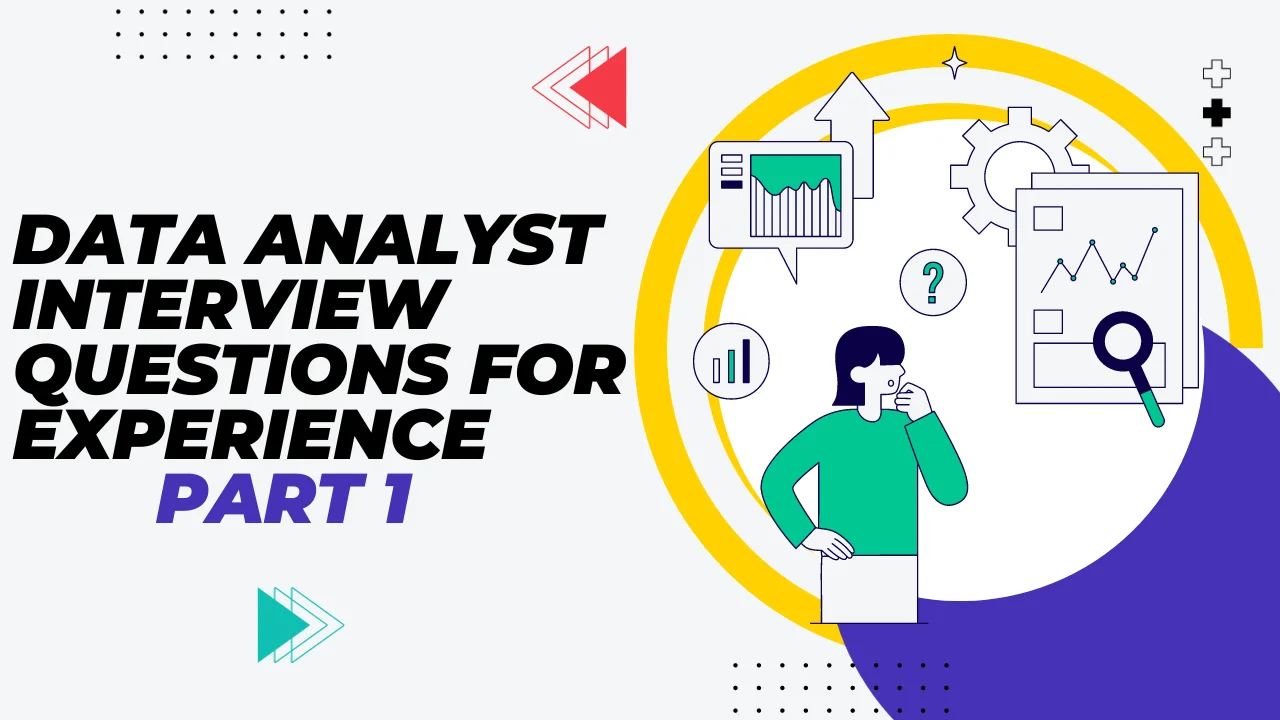Data Analyst Interview Questions for Experienced Part - 1

1. Write the characteristics of a good data model.
A good data model should be clear, scalable, and accurate. It should accurately represent the relationships within the data, maintain data integrity, and be easily understandable by both technical and non-technical stakeholders. Additionally, it should be adaptable to accommodate changes in data structure or business requirements.
2. Write the disadvantages of Data analysis.
Data analysis can be time-consuming, especially when dealing with large datasets. It requires skilled personnel to interpret results accurately, and there can be challenges with data quality or missing information that affect the analysis outcomes. Moreover, there’s the risk of drawing incorrect conclusions if the analysis methods or assumptions are flawed.
3. Explain Collaborative Filtering.
Collaborative Filtering is a technique used in recommendation systems. It predicts a user’s preferences or interests by collecting preferences from many users (collaborating) and finding similarities among them. This method recommends items to a user based on the preferences of similar users or items they have liked or interacted with in the past.
4. What do you mean by Time Series Analysis? Where is it used?
Time Series Analysis involves studying and analyzing data points collected or recorded at successive, equally spaced intervals over time. It’s used to identify patterns, and trends, and forecast future values, commonly applied in finance for stock market analysis, in economics for predicting trends, in weather forecasting, and in various other fields where historical data helps predict future outcomes.
5. What do you mean by clustering algorithms? Write different properties of clustering algorithms?
Clustering algorithms group similar data points together based on certain characteristics or features. Properties include:
- Centroid-based: Grouping data around centroids (e.g., K-means).
- Density-based: Forming clusters based on the density of data points (e.g., DBSCAN).
- Hierarchical: Creating a tree of clusters, merging or dividing as needed (e.g., agglomerative clustering).
- Partitioning: Dividing data into distinct groups (e.g., K-medoids).
6. What is a Pivot table? Write its usage.
A Pivot table serves as a tool for summarizing data within spreadsheet software. It allows users to reorganize and summarize selected columns and rows of data into a more manageable format. It’s widely used for data analysis, especially for summarizing and aggregating large datasets to extract meaningful insights.
7. Explain the concepts of univariate, bivariate, and multivariate analysis.
- Univariate analysis: Examining a single variable or characteristic at a time.
- Bivariate analysis involves examining the connection between two variables.
- Multivariate analysis: Simultaneously studying more than two variables to understand relationships, patterns, or dependencies among them.
8. Name some popular tools used in big data.
Tools commonly used in big data include Hadoop, Spark, Kafka, Hive, Cassandra, and Flink, among others, which facilitate storage, processing, and analysis of massive datasets.
In conclusion,
first part of the Data Analyst Interview Questions for Experienced covers a spectrum of fundamental concepts essential for seasoned data analysts. These questions explore various aspects such as data summarization, relationship analysis, clustering methodologies, and statistical techniques used in classification. Mastering these topics demonstrates a robust understanding of analytical tools and methodologies crucial for making informed data-driven decisions. By delving into these concepts, experienced data analysts can showcase their expertise and readiness to tackle complex data challenges across diverse domains and industries. This comprehensive set of questions serves as a valuable guide for both interviewees seeking to demonstrate their skills and interviewers aiming to assess candidates’ depth of knowledge in the data analysis domain.
Ready to take your Data Analytics skills to the next level? Explore our top-notch Power BI Course in Chennai. Our expert instructors and hands-on approach ensure that you not only ace interviews but also thrive in real-world scenarios. To kickstart your journey to Data Analytics excellence, contact us at +91 9655-333-334. Secure your future today with the Best Data Analytics Courses In Chennai. Don’t miss out on the chance to propel your career forward!





